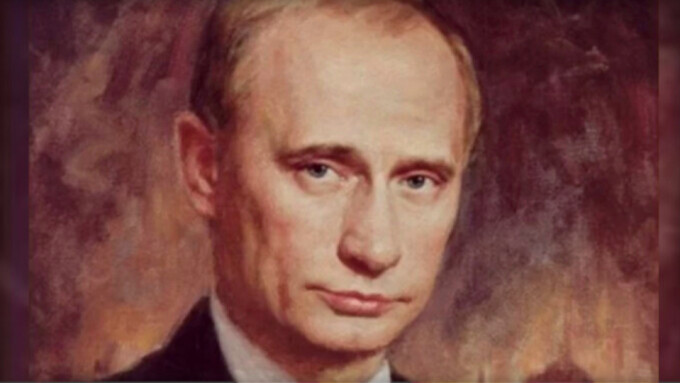MOSCOW — A year after Vladimir Putin announced sweeping measures to regulate internet content, a Russian court today fined Google nearly $100 million for “systematic failure to remove banned content,” which encompasses both political and social messaging of which the Moscow government does not approve, and almost all adult material online.
The fine is “the largest such penalty yet in the country as Moscow attempts to rein in Western tech giants,” the Washington Post reported. It follows a series of reports by the Russian government’s internet regulatory body, Roskomnadzor — a Russian acronym for Federal Service for Supervision of Communications, Information Technology and Mass Media.
Meta — the company formerly known as Facebook, which also owns Instagram — was fined approximately $27 million for the same supposed crime against mandatory moderation.
“The fine represents an escalation in Russia’s push to pressure foreign tech firms to comply with its increasingly strict rules on what it deems illegal content,” wrote the Washington Post’s Isabelle Khurshudyan.
Where Politics and 'Pornography' Collide
The international press has emphasized Putin’s onslaught against apps, websites, posts and videos that may mention jailed opposition leader Alexei Navalny, but the category for “banned content” is broad and imprecise, with shifting boundaries that in practice are deployed through highly selective enforcement.
Often, actual enforcement cites “pornography,” "sexual material” or “endangering youth” as justifications for prosecutions that may have a political component.
Last April, as XBIZ reported, a Navalny-linked dissident was jailed in a high-security prison after a government spy denounced him for “obscene material” — in fact, a music video — supposedly posted seven years ago.
“In 2014,” Amnesty International explained, the political dissident had apparently “shared the music video for [German punk metal band] Rammstein’s song ‘Pussy’ on the Russian social network VKontakte. More than six years later in September 2020, the authorities charged him with ‘production and distribution of pornography.’”
Google has 10 days to appeal the unprecedentedly large fine, which follows other smaller fines requested by Roskomnadzor since Putin announced the tightening of censorship in his 2020 end-of-year address to the country.
'Highly Unpleasant Measures'
At his 2021 end-of-year press conference on Thursday, Putin said Russia “will continue insisting that our joint work with global network platforms will be in line with the Russian laws.”
Putin also threatened a block of platforms “if we are forced into it.”
“We will be forced to up our demands in regard to everyone who works with such issues and ignores the interests of Russian society,” the Russian leader added.
Anton Gorelkin, the deputy chairperson of the Russian State Duma Information Policy Committee, threatened Google via his Telegram channel with “highly unpleasant measures.”
“If the turnover-based fine does not bring Google to its senses,” Gorelkin added, the Putin regime will resort to these unspecified “unpleasant measures” in order to “continue to defend the right of Russian citizens to a safe online environment.”
Censorship and 'Black Boxes'
In October, The New York Times reported that earlier in the year, Roskomnadzor sent a series of seeming routing emails and forms to internet service providers across the country requesting disclosure of traffic numbers, equipment specifications and connection speeds.
Then, according to the Times, “government-approved technicians” installed mysterious “black boxes” alongside the ISPs’ own systems and servers.
“Sometimes caged behind lock and key, the new gear linked back to a command center in Moscow, giving authorities startling new powers to block, filter and slow down websites that they did not want the Russian public to see,” the New York Times report continued. “The process, underway since 2019, represents the start of perhaps the world’s most ambitious digital censorship effort outside of China. Under President Putin, who once called the internet a ‘CIA project’ and views the web as a threat to his power, the Russian government is attempting to bring the country’s internet to heel.”
Earlier this month, Roskomnadzor filed the year-end fines against Google and Meta; at the same time, the government regulator temporarily blocked access to Tor browsers.
This week, it was announced that the controlling stakes for Russia’s most popular domestically-based social networking platform, VKontakte or VK, had quietly been transferred to Gazprom Media and Sogaz, both companies that are closely linked to the government and Putin.
In June, a Roskomnadzor unit proposed segregating all “X-rated material” by “shuttering [it] away in an adults-only area on the internet” based on the government's determination of what is “illegal” or “not prohibited by law.”
Main Image: Official oil portrait of Vladimir Putin (Source: Russian Government)




